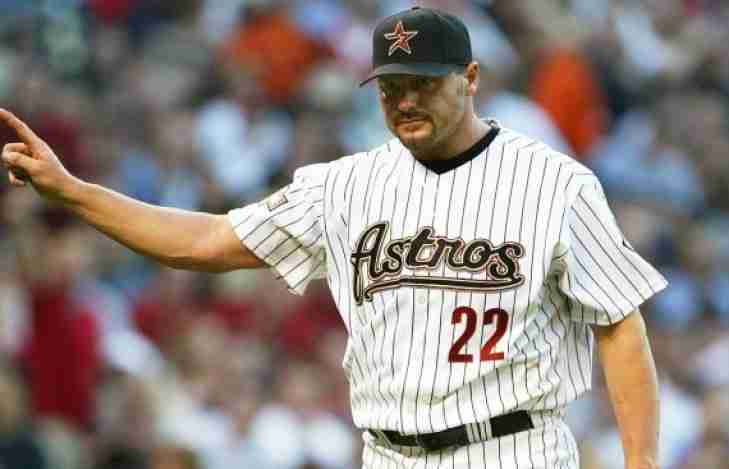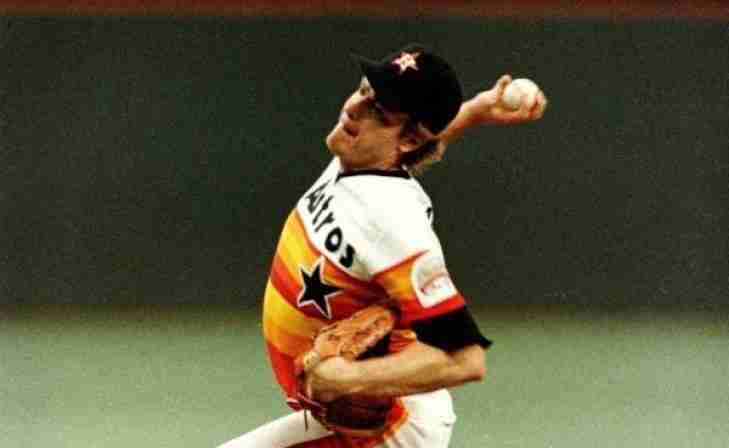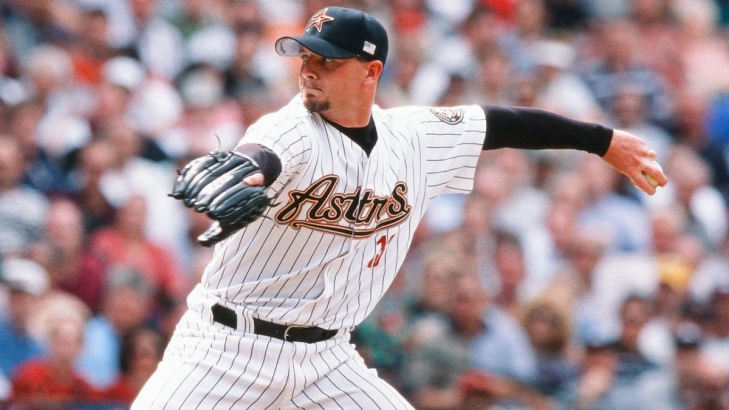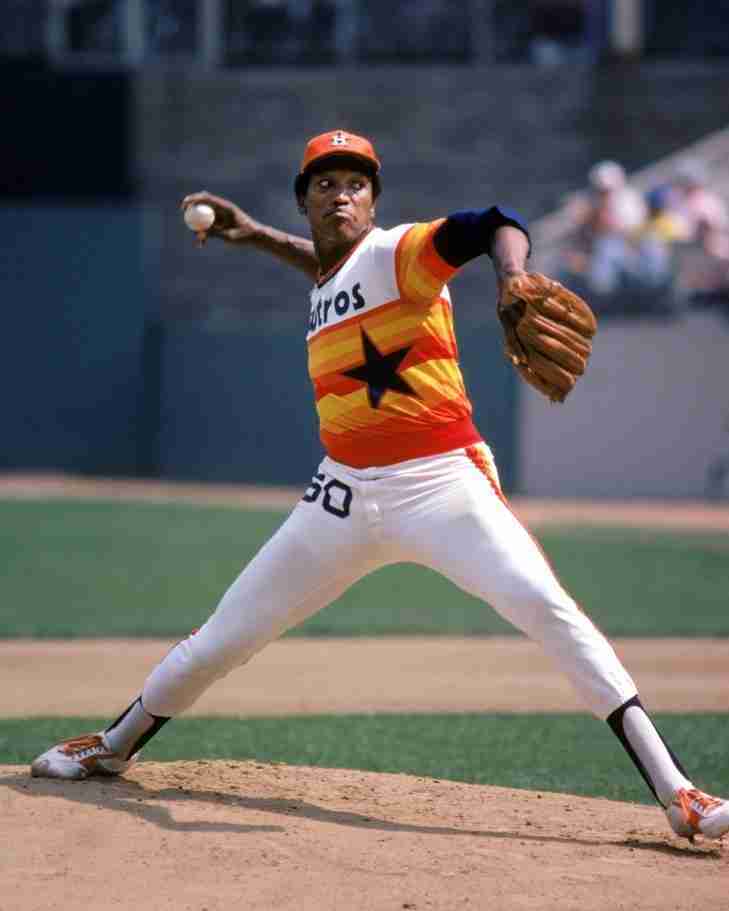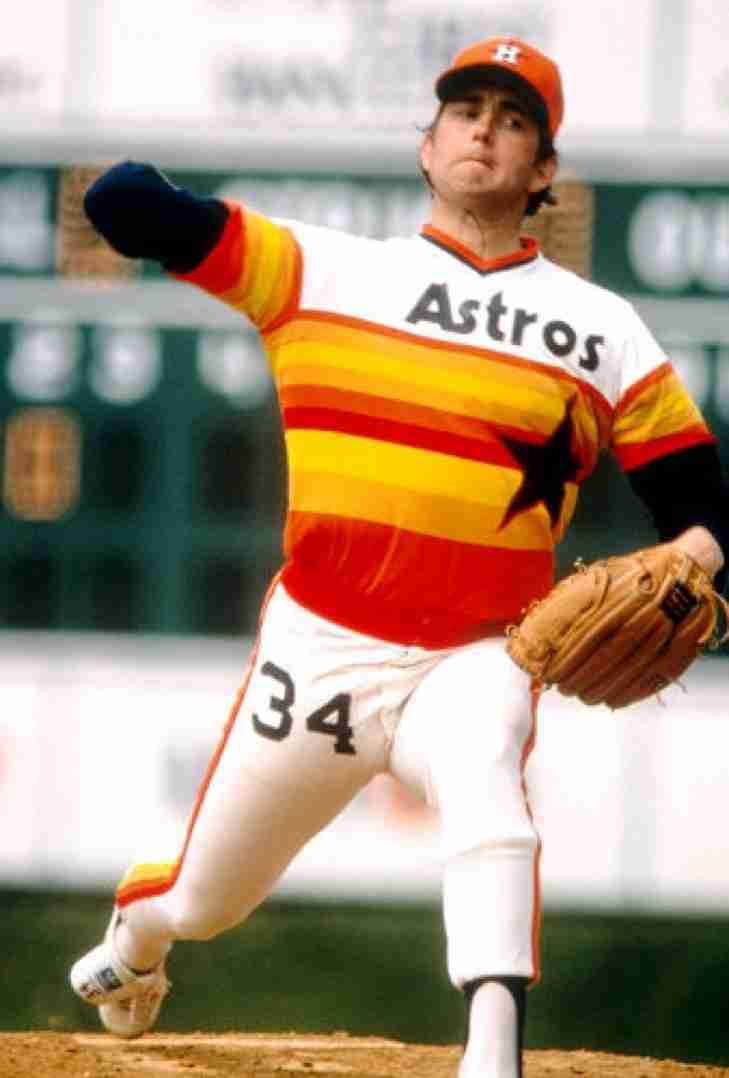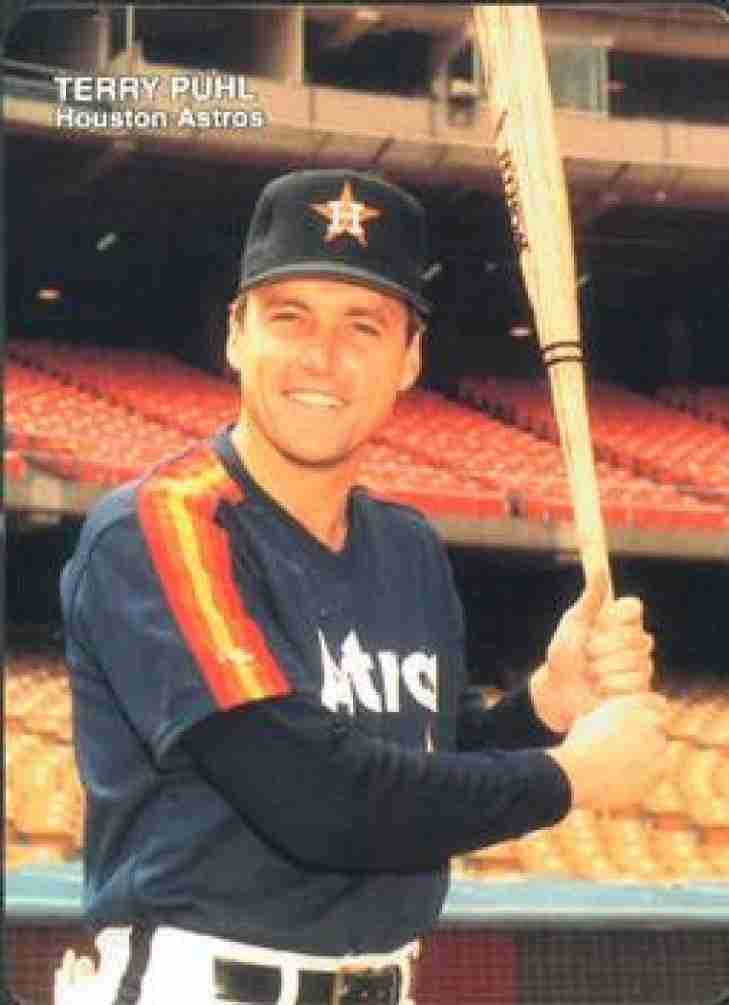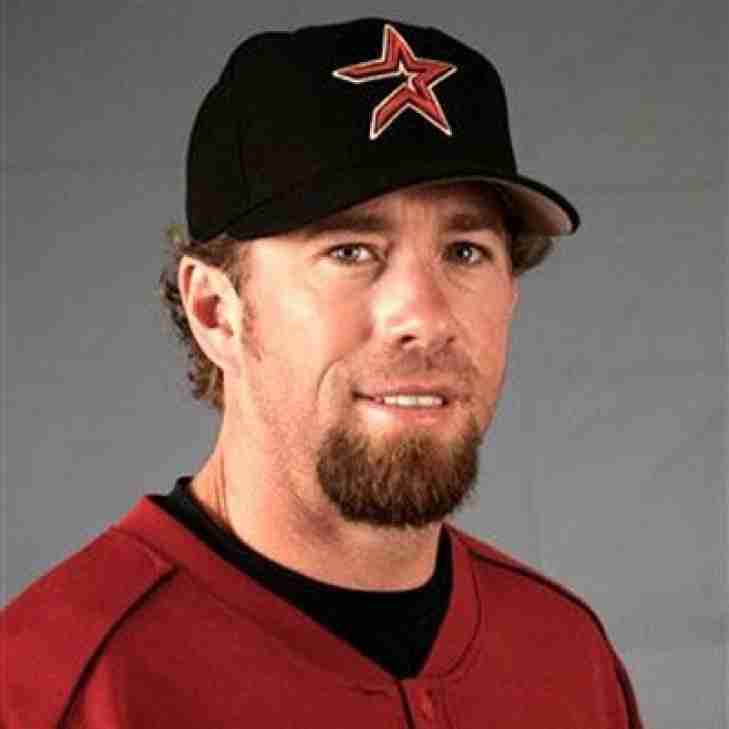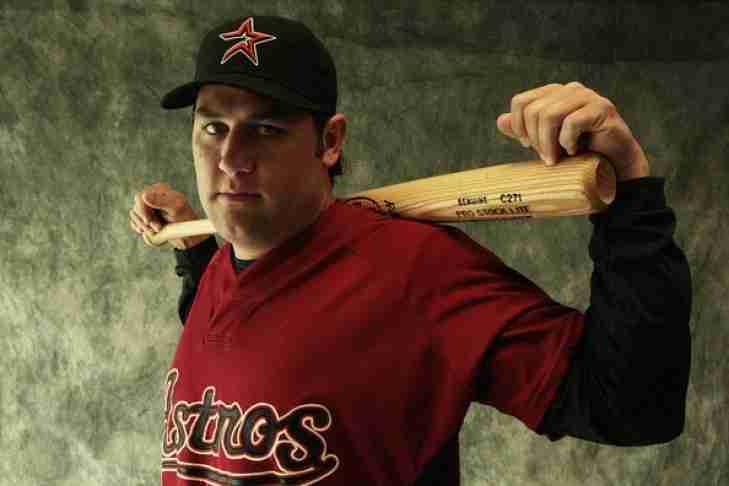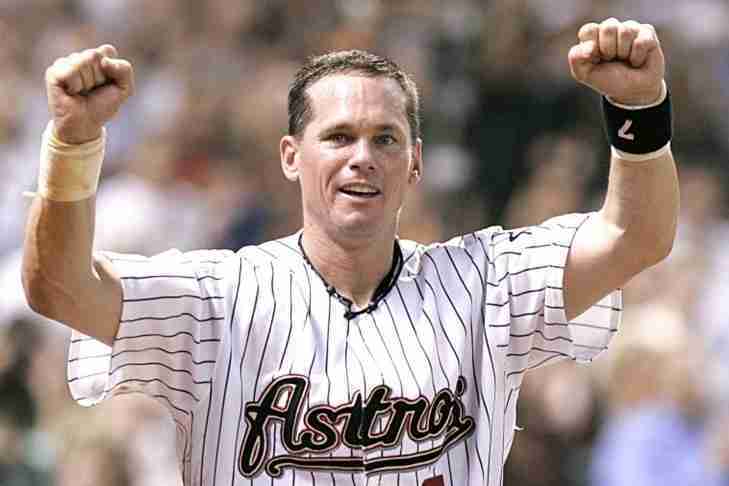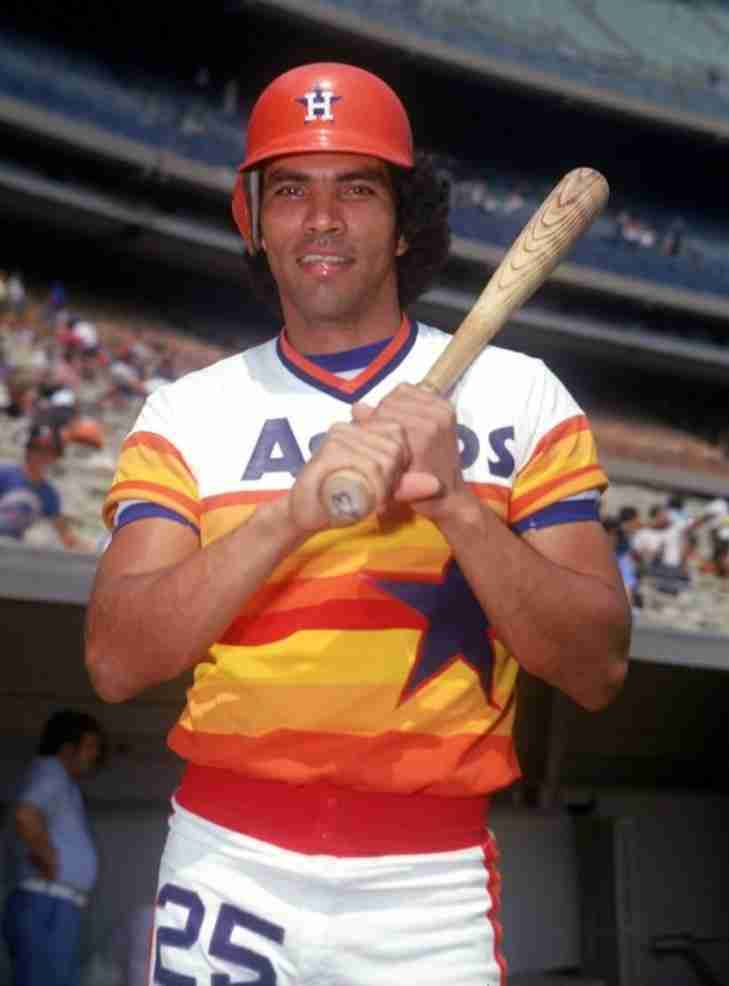37. Kevin Bass
32. Turk Farrell
30. Roger Clemens
29. Ken Forsch
26. Shane Reynolds
10. Mike Scott
Scott's number 33 was retired by the Astros in 1992, and in 2019, he entered the team's Hall of Fame in the first-ever class.
25. Billy Wagner
20. Joe Niekro
14. J. R. Richard
12. Nolan Ryan
Ryan arrived as a Free Agent for the 1980 season and would stay in Houston for nine seasons. Ryan would win the Strikeout title twice as an Astro (low for him), and was a two time All Star and would twice finish in the top five in Cy Young voting. He would leave Houston, for the Texas Rangers after 1988, and with the Astros, he had 1,866 Strikeouts and a 106-94 record. The Astros retired Ryan's #34 in 1996, and inducted him into their first Hall of Fame Class in 2019.
3. Jose Altuve
Altuve would become an All-Star in 2012 and secured himself as a bona fide hitting machine. After an "off-season" in 2013, he was an All-Star again in 2014 and went on an incredible hitting tear where he not only exceeded the 200 Hit mark but would lead the American League in that statistic. Altuve would win the Batting Title three times in that time frame and more importantly in 2017 he would win the MVP and lead the Astros to the World Series Title.
He slumped after 2017, though was still a very good player, but he had a renaisance in 2022, where not only was he an All-Star, he was fifth in MVP voting, added a sixth Silver Slugger, and was named to the All-MLB 1 Team. More importantly he was the heart of the squad that on the World Series, the second for both the Astros and Altuve.
Altuve is still with Houston a of this writing and could become the greatest Astro ever if he continues at this pace.
21. Terry Puhl
Puhl was chosen for the Astros Hall of Fame in 2022.
27. Glenn Davis
22. Don Wilson
He would have a record of 104-92 with 1,238 Strikeouts and was part of the first Astros Hall of Fame Class in 2019.
1. Jeff Bagwell
5. Cesar Cedeno
From the Dominican Republic, Cesar Cedeno was signed as an Amateur Free Agent in 1967, and he made the Astros roster in 1970, finishing fourth in Rookie of the Year voting. He built on that, leading the NL in Doubles, which he did again in 1972, but that was a special year.
That season, Cesar Cedeno would become the second player in MLB history to hit 20 Home Runs and accumulate 50 Stolen Bases in a season, a feat he would duplicate in the next two years. The flashy Dominican was known for his aggressive defense and on the base paths, which resulted in four Gold Gloves and six consecutive seasons swiping 50 bases. The four-time All-Star finished in the top five in Offensive bWAR on four occasions.
Cedeno was shipped to Cincinnati in 1982, and he left the Astros with 1,659 Hits, 163 Home Runs, and 487 Stolen Bases. In 2020, the Astros inducted Cedeno into their Hall of Fame.
4. Lance Berkman
The third member of the famed Houston Astros “Killer B’s”, Lance Berkman had a decade of success in the state of Texas where he would finish five times in the Top Ten in National League Most Valuable Player voting.
Berkman debuted in 1999, and he went to his first All-Star Game in 2001, where he was entrenched as Houston’s third star behind Jeff Bagwell and Craig Biggio. He had five 30 plus Home Run Seasons, and another five where he had over 100 RBIs as an Astro. He hit for average, with four years going over .300, and had a Slash Line of .296/.410/.549 with the team.
His time with Houston ended when the fading Astros dealt him to the New Year Yankees, and he signed that off-season with the St. Louis Cardinals, and would win the World Series there in 2011.
Berkman would sign a one-day contract in 2013, so that he could retire as an Astro. With Houston, he collected 1,648 Hits, with 326 Home Runs, and 1,090 RBIs. The team inducted Berkman into their Hall of Fame in 2020.
2. Craig Biggio
9. Jim Wynn
Wynn played the first eleven seasons of his career in the Lone Star State, and he amassed 1,291 Hits and 223 Home Runs for the Astros. The Astros gave him the ultimate honor in 2005 when they retired his number in 24, and they also induced Wynn into their Hall of Fame in 2019.




